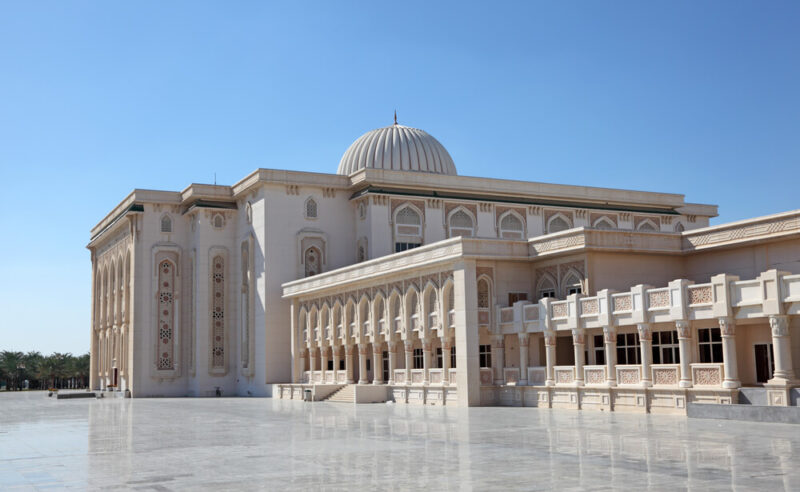Whether you’re looking for schools for your children or want to expand your skillset through pursuing higher education, the UAE has a wide range of educational institutes for all students.
In this guide, we will be covering the different educational institutes in the UAE, from public and international schools to higher education institutions. Furthermore, we will touch on the ranking systems in the UAE to help you make better decisions when choosing where to study.
This article aims to guide you through the education system in the UAE in a simple yet comprehensive way, so let’s dive right in.

Education in The UAE
The United Arab Emirates, a diverse hub attracting expatriates worldwide, offers an extensive array of educational opportunities catering to children from various backgrounds. Despite challenges faced by parents, such as affordability and availability of international schools, the country provides numerous options to meet different needs.
With careful research and consideration, expats can find suitable educational institutions that offer high-quality learning experiences for their children in this multicultural environment.
Schools
Public Schools
Public schools in the UAE teach the national curriculum, and the language of instruction is Arabic, with English being taught as a second language.
Government schools in the UAE offer completely free education to all of the following:
- UAE nationals
- UAE passport holders
- GCC citizens
- the children of those granted nationality by decisions made by the President or Vice President of the UAE.
Besides, since 2001, ex-pat students have been allowed to attend public schools; however, they are required to pay fees. Despite the fees, public schools are usually more affordable for ex-pats than private schools.
Private Schools
There are hundreds of private schools across the UAE that offer a wide range of international curriculums. The most common curriculums taught at these schools include the British, American, IB, and Indian national curriculums.
In addition, the prices at private schools can vary dramatically, with yearly fees ranging from AED 2,643 to AED 114,128. Fees may also be different at the same school for different grade levels.
Here’s a look at the average fees for some of the top schools in the UAE:
| School | Curriculum | Annual Fees |
| Dubai British School Emirates Hills | British | AED 49,026 – AED 66,545 |
| GEMS Dubai American Academy | American | AED 61,190 – AED 86,260 |
| Emirates Future International Academy (Abu Dhabi) | Indian | AED 7,800 – AED 14,600 |
| Dubai International Academy Emirates Hills | IB | AED 40,900 – AED 72,600 |

If you’d like a more in-depth look at the private schools in a specific city, check out the links below for lists of the top schools across several emirates in the UAE.
Dubai
Sharjah
Abu Dhabi
Umm Al Quwain
School Ratings
Several factors come into play when choosing a school, with quality being high on the list. Luckily, there are regulatory authorities that assess private schools to help you make the best decision.
The Abu Dhabi Department of Education and Knowledge (ADEK) and the Knowledge and Human Development Authority (KHDA) are two government entities. They oversee the development of education in Abu Dhabi and Dubai, respectively.
Moreover, these entities inspect private schools every year or two to assess the quality of the education offered. The inspections include evaluating the quality of teaching, curriculum, and student safety, as well as their ability to cater to the needs of students with special educational needs, among other criteria.
You can check the school directories at KHDA and TAMM, where you can explore the individual profiles of all schools in Dubai and Abu Dhabi, respectively. Each school profile includes its inspection report, so you can have an in-depth look at the school’s strengths and weaknesses.
Higher Education

Universities in UAE
In recent years, the Ministry of Education in UAE has made significant strides to provide top-quality higher education; accordingly, it’s now home to some of the best universities in the region.
According to the QS World University Rankings® 2022, the American University of Sharjah, UAE University, and Khalifa University rank within the top 400 universities across the world.
Furthermore, there are several well-ranked universities with main campuses in other countries that have opened branches in the UAE, such as:
- Middlesex University Dubai
- University of Wollongong Dubai
- Murdoch University Dubai
- Rochester Institute of Technology Dubai
- New York Univerisity in Abu Dhabi
- Sorbonne University Abu Dhabi
In addition, the UAE also has several public universities, which UAE citizens can attend for free. The public universities in the country include:
- UAE University
- Higher Colleges of Technology (HCT)
- Khalifa University
- Abu Dhabi University
- Zayed University
- Mohamed bin Zayed University of Artificial Intelligence.
Here’s a list of the best universities in the UAE:
- Khalifa University
- United Arab Emirates University
- American University of Sharjah
- University of Sharjah
- Zayed University
Accreditation of Universities and Colleges in the UAE
Deciding to pursue a degree in higher education can be quite a commitment from both a time and financial standpoint.
That is why it is important to ensure that the degree you choose is not only of a high calibre but also recognised on an international scale. That is where the Commission for Academic Accreditation (CAA) comes in.
As a member of the International Network for Accreditation, the commission is responsible for making sure higher education programs adhere to international standards.
Besides, the CAA also oversees the accreditation of all programs at higher education institutes in the UAE. For a list of the accredited programs offered at universities and colleges in the UAE, you can check the CAA’s website.
How Is the Education in the UAE?
The UAE boasts a robust education system, offering high-quality learning opportunities for all children. Here’s a breakdown of its key features:
Structure
- 12-year system: Education starts at age 6 and finishes at 18, encompassing 6 years of primary school and 6 years of secondary school (divided into middle and high school).
- Compulsory education: All children between the ages of 6 and 18 are required by law to receive an education, ensuring equal access to knowledge and skills.
- Academic year: The academic year runs from September to June at public schools, with breaks for holidays and exams.
Types of schools
- Public schools: Free and accessible to all citizens, offering a strong curriculum aligned with national standards.
- Private schools: Follow diverse curricula, including international programs like British, American, and IB, catering to a variety of cultural and educational preferences.
- International schools: Offer education in languages other than Arabic, providing a global perspective and fostering international understanding.
Key aspects
- Literacy: The UAE has achieved a remarkably high literacy rate, exceeding 95%.
- Focus on quality: The government and educational institutions are committed to continuous improvement, implementing innovative teaching methods, and investing in modern facilities.
- Multilingualism: Arabic is the primary language of instruction, but English is widely taught and used, preparing students for a globalized world.
- Cultural diversity: The education system accommodates students from diverse backgrounds, promoting tolerance and respect for cultural differences.

What Are the Four Stages of Education in the UAE?
The UAE’s education system comprises four distinct stages, each offering a unique learning experience tailored to the developmental needs of students:
- Early Childhood Education (ages 3-5)
This stage focuses on stimulating young minds through play-based learning, fostering social skills, and promoting cognitive development. Kindergarten programs provide your kids with a nurturing environment to prepare them for formal education.
- Basic Level (ages 6-10)
The following stage is Primary education, during which the kid is introduced to core subjects like Arabic, English, mathematics, science, and social studies. Your child will develop foundational skills in literacy, numeracy, critical thinking, and problem-solving.
- Intermediate Level (ages 11-13)
This stage builds upon the knowledge acquired in primary school by delving deeper into academic subjects and introducing new disciplines like computer science and foreign languages. Besides, your child will work on their research and analytical skills, preparing for the transition to secondary education.
- Secondary Level (ages 14-18)
This final stage offers them diverse academic tracks to pursue their interests and prepare for higher education or the workforce. Your child can specialize in subjects like science, humanities, or vocational training, acquiring the skills and knowledge necessary for their chosen path.
Key Takeaways
The UAE offers diverse education options, with public schools serving Emiratis and private schools catering mostly to expats. Private institutions follow various international curricula such as British, American, IB, and Indian (CBSE). Education is compulsory for children aged 6 to 18, and the school week runs from Sunday to Thursday.
Higher education includes public and private universities, as well as international campuses and vocational training institutes. When selecting a school, consider curriculum, fees, location, language of instruction, and extracurricular activities to ensure the best fit for your child’s needs.
FAQs
Public schools in the UAE teach the national curriculum, with Arabic being the language of instruction, and English is taught as a second language. Private schools teach a variety of international curricula, including the Indian national curriculum, IB, American and British curricula.
The UAE has plenty of very high-quality international private schools and nurseries. Additionally, higher education institutes are also among the best in the region, with three UAE universities ranking in the top 500 universities worldwide.
The UAE government recognises the power education has to broaden our horizons and open up new opportunities; consequently, it has invested a lot into improving the quality of education across the country.
This has led residents in the UAE to have access to plenty of quality educational institutes and has highlighted this country as a hub for quality education in the region.
The UAE has achieved a global top ranking in three indices during 2021 associated with Sustainable Development Goal 4 of Quality Education.
– Primary
– Middle
– Secondary
– Vocational
– Tertiary (Bachelor, Master, Doctorate)